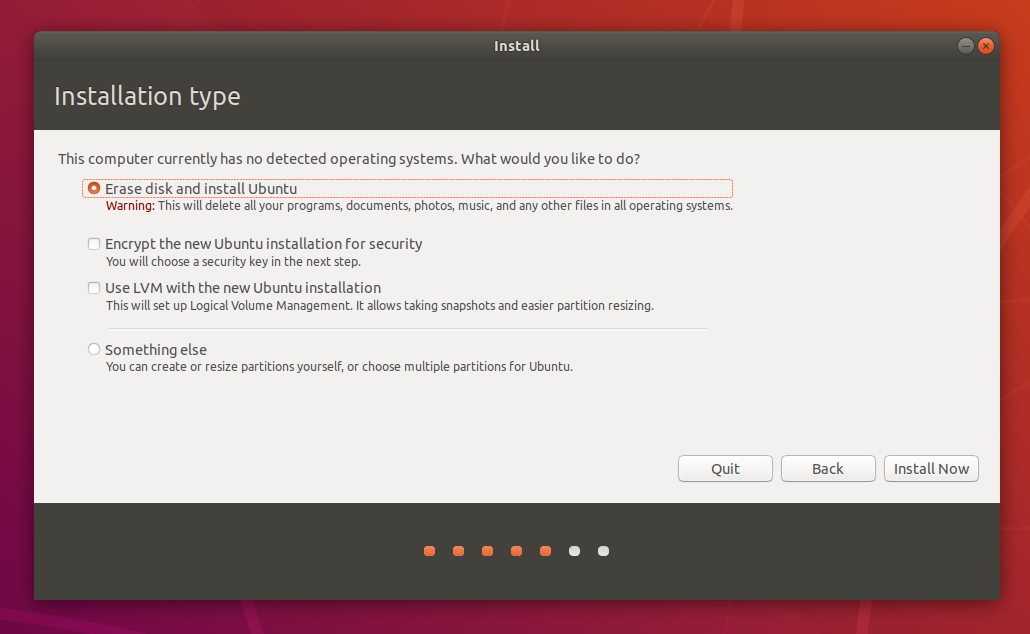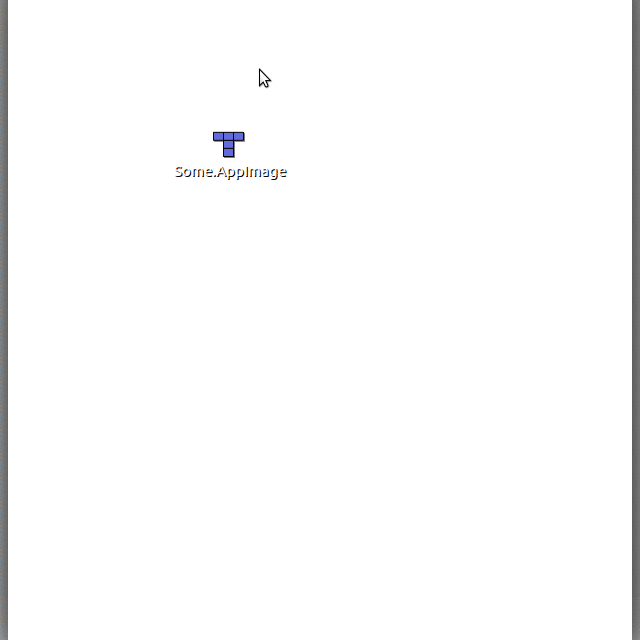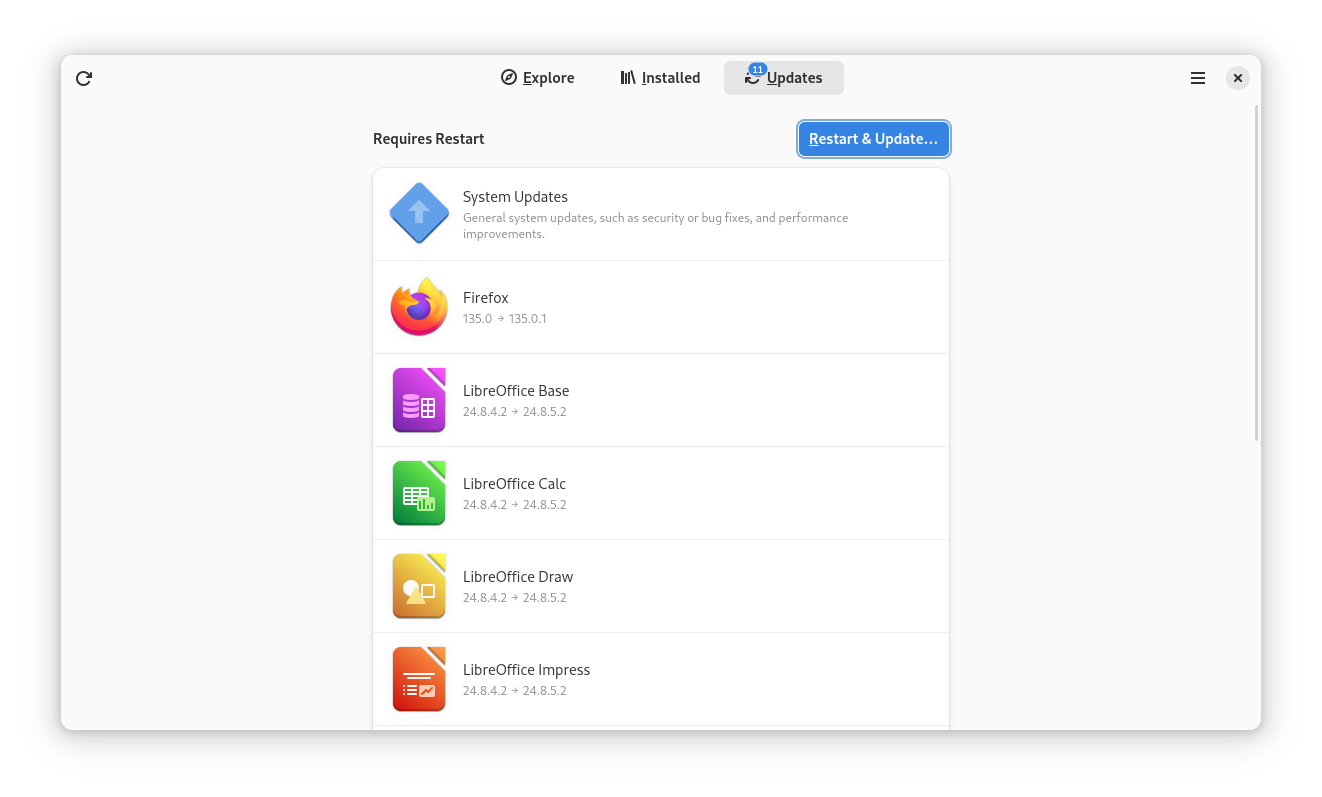230 lines
10 KiB
Markdown
230 lines
10 KiB
Markdown
# Setup a secure Linux system
|
|
|
|
## Why
|
|
|
|
Free Software & Linux enable most of the [Status Principles](https://our.status.im/our-principles/)
|
|
|
|
Those principle include Security, Privacy and Censorship resistance.
|
|
|
|
### 🛡️ Security
|
|
|
|
It is generally believed that Linux is a very secure operating system.
|
|
The security will depend largely on the distribution & setup.
|
|
|
|
Some Linux distributions [have achieved a very high level of security standards & certifications](https://access.redhat.com/articles/2918071)
|
|
|
|
### ㊙️ Privacy
|
|
|
|
Linux distributions have far greater respect for privacy than the competition from Microsoft, Google or Apple.
|
|
Most Linux distributions will never require any form of identification to be installed, used or to access their app store.
|
|
|
|
### 🤐 Censorship resistance
|
|
|
|
Apple, Google & Microsoft operating systems, along with their respective software distribution channels (App Store, Google Play & Microsoft Store) may censor specific applications.
|
|
|
|
This is much more difficult or even impossible on Linux.
|
|
|
|
## How
|
|
|
|
### Install Linux in a Virtual Machine (VM)
|
|
|
|
Running Linux in a Virtual Machine is the best way to get a feel of what to expect.
|
|
For some use cases, it could also be acceptable to operate long term by running Linux in a VM.
|
|
But be aware from a security point of view, a VM and guest operating system will always somehow inherit the security of the host.
|
|
Meaning that if your main host system is compromised, you should ultimately consider the guess insecure too (even this can be partially mitigated by disk encryption of the guest OS).
|
|
|
|
The most popular choice for virtualization is the free VirtualBox solution https://www.virtualbox.org/
|
|
|
|
|
|
### Buy a laptop with Linux pre-installed
|
|
|
|
Some specialized computer vendors sell privacy-preserving laptops pre-installed with Linux. The most popular ones being:
|
|
|
|
- System76 https://system76.com/ & its Pop OS! distribution
|
|
- Purism Librem https://puri.sm/products/ & its PureOS distribution
|
|
- Tuxedo https://www.tuxedocomputers.com/en
|
|
|
|
Some traditional computer manufacturers now also sell laptops with Linux preinstalled:
|
|
|
|
- Dell https://www.dell.com/en-us/work/shop/overview/cp/linuxsystems
|
|
- Lenovo https://www.lenovo.com/us/en/d/linux-laptops-desktops/
|
|
|
|
Some manufacturers like Framework are also dedicated to support Linux https://frame.work/blog/linux-on-the-framework-laptop
|
|
|
|
If those manufacturers do not ship the specific model preinstalled with Linux in your country. The fact that a model can be shipped with Linux is still a valuable information in terms of compatibility.
|
|
|
|
### Install Linux on an existing computer
|
|
|
|
#### Hardware compatibility
|
|
|
|
In general, most Intel/AMD based computers will support Linux pretty well nowadays.
|
|
|
|
You can probably find reports on most computer models in the Linux Hardware project database https://linux-hardware.org/?view=computers
|
|
|
|
Note that Linux compatibility can vary for special hardware like docking stations.
|
|
|
|
#### Linux Distributions for beginners
|
|
|
|
If you are new to Linux you will most likely start with one of the following distributions as they are very easy to install & use:
|
|
|
|
- Ubuntu Desktop
|
|
- Download: https://ubuntu.com/download/desktop
|
|
- Installation walkthrough https://ubuntu.com/tutorials/install-ubuntu-desktop
|
|
- Fedora Workstation
|
|
- Download https://getfedora.org/en/workstation/download/
|
|
|
|
The installation process should not be more difficult than installing Apple macOS or MS Windows. Most choices to make will be about the language, locals, timezone, keyboard & target installation disk.
|
|
The copy on the disk is usually very fast nowadays (~10 20 minutes)
|
|
|
|
Note that you can still keep your previous operating system (like MS Windows) intact on a distinct partition and boot on it if necessary (like to perform firmware upgrades).
|
|
|
|
**Attention**
|
|
You should be careful to make sure full disk encryption is enabled during the installation:
|
|
|
|
- For Fedora: Installation Destination screen > Encryption > ☑ Encrypt my data
|
|

|
|
- For Ubuntu: Installation Type screen > Advanced features > ☑ Encrypt the new Ubuntu installation for security
|
|

|
|
|
|
#### Other Linux Distributions
|
|
|
|
Other popular Linux distributions includes:
|
|
- Pop!OS https://pop.system76.com/
|
|
- Debian https://debian.org/
|
|
- CentOS https://www.centos.org/centos-stream/
|
|
- RedHat Enterprise Linux https://developers.redhat.com/blog/2016/03/31/no-cost-rhel-developer-subscription-now-available
|
|
- Linux Mint https://linuxmint.com/
|
|
|
|
and many more https://distrowatch.com/
|
|
|
|
##### Getting familiar
|
|
|
|
Most Linux distribution desktop environment is based on Gnome. You should first [get familiar with its UI](https://forty.gnome.org/) and [common applications](https://apps.gnome.org/)
|
|
|
|
#### Software sources
|
|
|
|
- 🟢 Linux distribution official repositories
|
|
- Examples: Debian or Fedora repositories
|
|
- Trust: very high, with usually fast updates
|
|
- Software usually sourced: base Operating System, Firefox, Chromium
|
|
- 🟡 Third-party repositories
|
|
- Examples: RPM Fusion, Flathub, Google repo, Microsoft repo
|
|
- Trust: Lower, updates may vary
|
|
- Software usually sourced: Brave, Google Chrome, Bitwarden
|
|
- 🟡 Browser extensions
|
|
- Examples: Chrome web store, Firefox add-ons
|
|
- Trust: Low, Depends
|
|
- Updates: Automatic
|
|
- Software usually sourced: Metamask, Bitwarden
|
|
- 🟡 Third party websites
|
|
- Examples: Status website, Ledger website
|
|
- Trust: Depends
|
|
- Updates: not automatic usually (AppImage)
|
|
- Software usually sourced: Status Desktop, Ledger Live, Bitwarden
|
|
|
|
##### The case of the Ubuntu Snap store
|
|
|
|
By default Ubuntu Software use the Snap Store which has an unconventional model with a large selection of software easily available but of various quality.
|
|
|
|
It is very convenient but the security model & controls applied are rather weak.
|
|
|
|
If you use Ubuntu, try to limit yourself to software where **Canonical** is the verified 🟢 developer or where you can verify a third-party vendor indeed control the package.
|
|
|
|
#### Applications distribution
|
|
|
|
##### Distribution package managers
|
|
|
|
Most applications on Linux are distributed as `.rpm` (on Fedora & Redhat derived systems) or `.deb` (on Ubuntu or Debian derived systems).
|
|
Most likely you won't have to deal with those as the installation & update are transparent in the [Software application](#updates)
|
|
|
|
For most software, you should first look if it is available in this format through your distribution official repository and Gnome Software.
|
|
|
|
🟠 Those packages require admin or `root` privileges to be installed.
|
|
|
|
##### AppImage
|
|
|
|
AppImage is a popular format for distributing portable software on Linux without admin privilege. It is a bit similar to macOS `.dmg` image files.
|
|
|
|
Applications such as Status Desktop and LedgerLive Desktop are distributed in this format on Linux.
|
|
|
|
You will have to make the `.AppImage` files executable to run them, as explained in the [Quickstart](
|
|
https://docs.appimage.org/introduction/quickstart.html#ref-how-to-run-appimage)
|
|
|
|

|
|
|
|
🟢 AppImage do not require admin or `root` privileges to be used.
|
|
|
|
#### Flatpak
|
|
|
|
Flatpak is an emerging format & ecosystem supported by default on many Linux distributions such as Fedora, Centos, Clear Linux, Elementary, Pop OS!, PureOS, etc.
|
|
|
|
🟢 Flatpak do not require admin or `root` privileges to be installed & some sandboxing features are available.
|
|
|
|
##### Snap
|
|
|
|
Snap is an emerging format & ecosystem supported by default on many Linux distributions such as Ubuntu or Manjaro
|
|
|
|
🟢 Snap do not require admin or `root` privileges to be installed & some sandboxing features are available.
|
|
|
|
#### Updates
|
|
|
|
Gnome Software & Ubuntu Software will indicate when software updates are available.
|
|
|
|

|
|
|
|
Depending on the types of updates, a computer restart may or may not be required to apply them.
|
|
|
|
On Fedora to apply quickly security updates:
|
|
`sudo dnf install -y --security`
|
|
|
|
#### Common applications
|
|
|
|
##### Web browsers
|
|
|
|
Try to stick to Firefox or Chromium because they are usually provided, hardened & updated by the Linux distribution.
|
|
|
|
Please do not install any extensions besides things you really need (like Metamask)
|
|
|
|
Bookmark important URLs (Uniswap, etc.) once you have verified them.
|
|
|
|
##### Status Desktop
|
|
|
|
Status Desktop is available for Linux as an AppImage
|
|
https://github.com/status-im/status-desktop/releases
|
|
|
|
You will be in charge to download the latest AppImage when a new version is released.
|
|
|
|
##### LedgerLive Desktop
|
|
|
|
LedgerLive is distributed as an AppImage and available on the Ledger official website https://www.ledger.com/ledger-live/download
|
|
|
|
You will be in charge to update LedgerLive within the application itself.
|
|
|
|
### More things you can do
|
|
|
|
#### Recommended
|
|
|
|
- Verify the downloaded Linux image file
|
|
- Fedora https://getfedora.org/security/
|
|
- Ubuntu https://ubuntu.com/tutorials/how-to-verify-ubuntu
|
|
- Password protect the BIOS/UEFI
|
|
- Disable Intel ME / AMD PSP if you wish to
|
|
- Network considerations & VPN https://wiki.gnome.org/Projects/NetworkManager/VPN
|
|
- Automatic updates https://docs.fedoraproject.org/en-US/quick-docs/autoupdates/
|
|
- Check recommendations in the new "Device Security" panel of GNOME Settings
|
|
|
|
#### Optional
|
|
|
|
- Review services & firewall settings
|
|
- Use an application Firewalls like OpenSnitch https://github.com/evilsocket/opensnitch
|
|
- Consider an immutable OS like Fedora Silverblue https://docs.fedoraproject.org/en-US/fedora-silverblue/
|
|
- Sandbox applications you do not fully trust with Bubblewrap https://github.com/containers/bubblewrap
|
|
- Use Flatseal if you are using Flathub https://github.com/tchx84/Flatseal
|
|
- Consider hardening Web browsers specific settings
|
|
- Setup Yubikey for PAM login https://developers.yubico.com/yubico-pam/
|
|
- Restrict USB devices allowed with USBGuard https://github.com/USBGuard/usbguard
|
|
- Use an Intrusion Detection System (IDS) like AIDE https://github.com/aide/aide
|
|
- Use an antivirus like ClamAV https://www.clamav.net/
|
|
- Automate the setup with Ansible
|
|
|